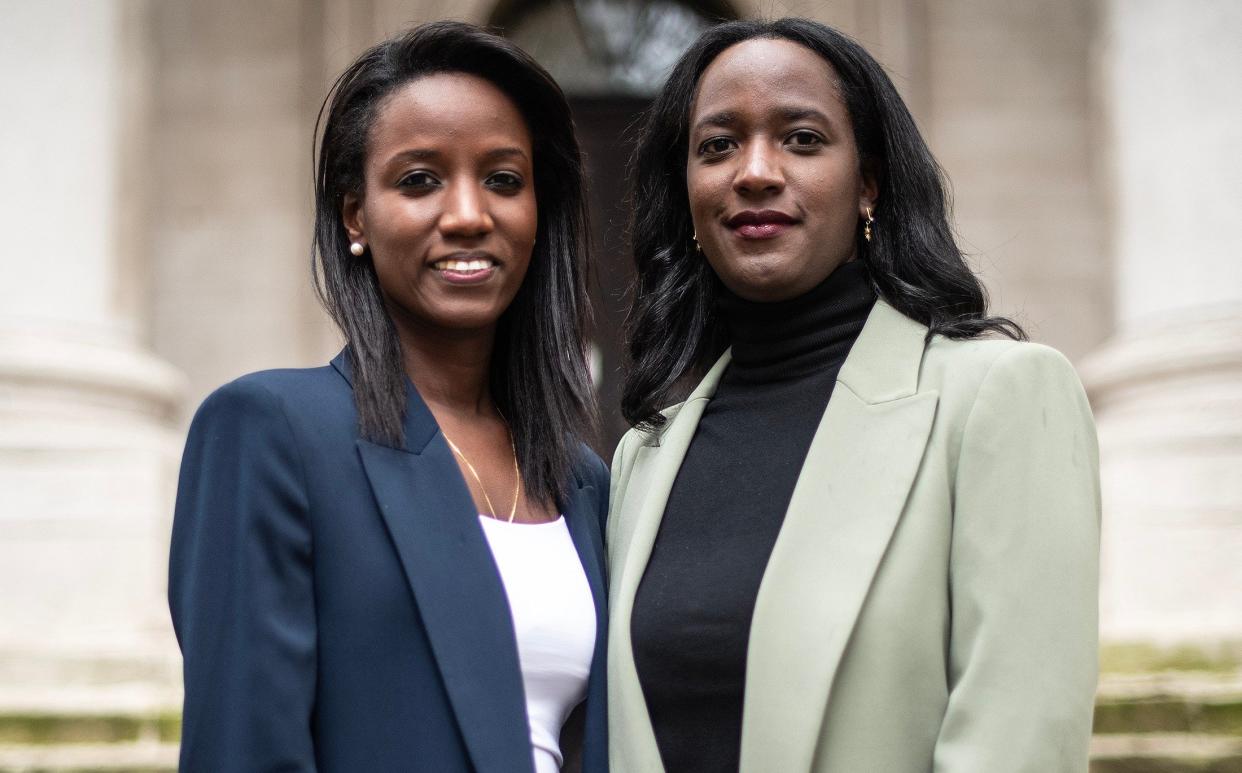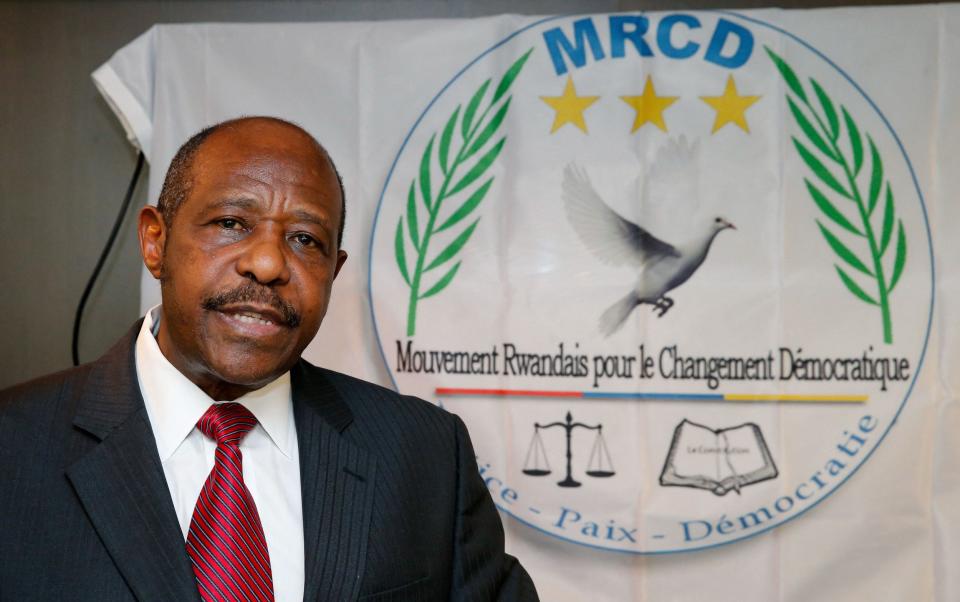Daughters of Hotel Rwanda hero call on Rishi Sunak to axe migrant plan

The daughters of Paul Rusesabagina, the real-life hero who inspired the film Hotel Rwanda, have condemned the Prime Minister’s plans to send asylum seekers to the country.
Anaïse, 31, and Carine Kanimba, 30, said it was “shocking” that the British Government was pushing ahead with plans to send refugees to Rwanda, given its human rights record.
Their comments come after Rishi Sunak vowed to pass emergency legislation and strike a new treaty with the country following a Supreme Court ruling that found the government’s Rwanda asylum policy unlawful.
Carine said the Prime Minister’s decision showed “complete disregard” for warnings about human rights breaches.
“It’s not only unfair to the refugees who are going to be sent there, but it’s so unfair to the Rwandans who are suffering every day under that regime,” she said.
“It’s essentially contributing to the continuation of their suffering.”
In 2020, their father Mr Rusesabagina, a prominent critic of Rwandan president Paul Kagame, disappeared after setting off on what he thought was a trip to Burundi for a speaking engagement.
Instead, he was tricked into boarding a plane that was bound for Kigali, where he was charged with terror offences and sentenced to 25 years’ imprisonment in what Human Rights Watch called a “flawed trial”.

In March 2023, he was released after 939 days of wrongful detention and flown to a military facility in San Antonio, Texas.
Mr Rusesabagina’s detention sparked criticism in the West and highlighted Rwanda’s record of crushing political dissent and free speech under Mr Kagame’s rule.
“The UK Government has itself condemned Rwanda for its abuses of human rights,” said Carine.
“Countries all around the world are constantly saying, ‘stop violating these principles’.”
On Thursday, his daughters, who quit their jobs to campaign for his release, were awarded a Magnitsky Human Rights Award.
“Every single day we were working,” said Carine.
“We never rested; we wouldn’t even allow ourselves to have fun with our friends, because we [didn’t] feel like we were justified to even have fun or laugh.”
Describing the moment their father returned, Anaïse said: “Dad walked in and we all crumpled. We couldn’t believe what was happening. He held each one of us and was saying, ‘I’m here, it’s ok’.”
Mr Rusesabagina, now 69, was the manager of the Hôtel des Mille Collines in the Rwandan capital of Kigali, where he sheltered more than 1,200 people during the Rwandan genocide of 1994. That includes his two nieces, whom he rescued from a refugee camp in Kabuga.
He was awarded the US Presidential Medal of Freedom in 2005.
‘She’s unsafe there’
Carine said she receives “hundreds of messages on a daily basis from Rwandans across the world, and across Rwanda, asking for help in shedding light [on] the abuse”.
“Two days ago, before the ruling was published, I received this message from two women in Rwanda, who told me that they had made it safely out of the country… she’s unsafe there, while here they’re considering sending people to that same place.
“Our father was kidnapped, jailed, tortured and hidden away from the public eye,” she continued.
“They attacked us, they spied on us, they made us feel so unsafe… [we] urge people here in the UK not to send people to Rwanda, knowing everything we do about the country and our experience.”
They have pledged to continue to fight for the freedom of others in the same situation. “We want to carry this legacy forward… and continue to call for justice and accountability for everyone out there,” said Carine.
“There are so many political prisoners in Rwanda, there are so many people who are being mistreated across the world, and I think if this worked for us, it can work for so many other people.”
In response to the Supreme Court ruling, Mr Sunak said the Government was working on a new treaty that would protect those relocated to Rwanda against removal and allow Parliament to confirm that “Rwanda is safe”.

 Yahoo News
Yahoo News 
